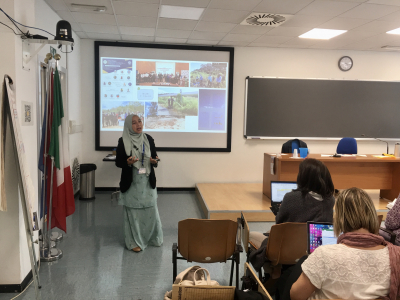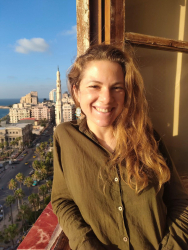


In this series of video interviews, authors present their case studies that IAP recently published in collaboration with Save the Children in 'Climate Change and Health: Science-based Policy Solutions'.
In Malaysia, the vast peatland forests of the ASEAN region play a critical role as carbon reservoirs, yet they face escalating risks exacerbated by climate change. Aduwati Sali, from the Wipnet Research Centre at the Faculty of Engineering, UPM, leads a groundbreaking initiative aimed at predicting and mitigating fire risks through innovative technology. This project, part of the IAP and Save the Children collaboration on Climate Change and Health, leverages IoT systems and big data analytics to monitor and manage peatland conditions effectively.
The study showcases Malaysia's proactive approach to environmental sustainability by integrating IoT sensors and advanced analytics to predict Fire Danger Rating System (FDRS) indices. Sali's team collaborates closely with local stakeholders and regional partners to implement and expand these technologies across the ASEAN Peatland Integrated Management Systems, thereby enhancing regional resilience against transboundary haze.
Watch the full interview with Aduwati Sali to explore the transformative impact of technology on environmental resilience:
Case Study Overview:
Read and download the case study here.
Read and download the entire book here.
Stay tuned for more video interviews from the authors of the IAP Climate Change & Health case studies. Follow us with the hashtag #ClimateHealthSolutions to stay updated on the latest insights and developments.
Watch all the video interviews on the IAP YouTube channel here.
For more information on the project, read here.
